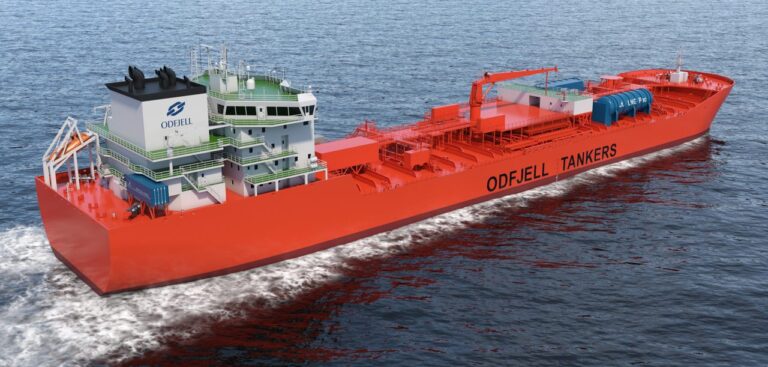A research project has launched in Norway to explore the use of fuel cells on oceangoing vessels, with the hope that emissions can be reduced by 40-100%.
The main partners in the project are Odfjell, Prototech, Wärtsilä and Lundin Energy Norway. Odfjell has leading expertise in global shipping, Prototech in fuel cell technology, Wärtsilä in maritime technology and energy, and Lundin Energy Norway in oil and gas. The system will first be tested at the Sustainable Energy Norwegian Catapult Centre in Stord before installation on board a chemical tanker.
The pilot will investigate the use of different types of fuel, including green ammonia and LNG, the aim being to allow vessels to use different fuel according to availability. “Our tests show a CO2 reduction of as much as 40-45% when using LNG, compared with current solutions. Increased efficiency and reduced fuel consumption also provide significant cost savings, and the ship will be able to sail significantly longer on the same amount of energy. The system will also be ready to operate completely emission-free from the locations where, for instance, ammonia is available for bunkering,” explained Bernt Skeie, CEO of Prototech.
The project aims to develop a technology that can provide emission-free operation over long distances. Battery solutions are currently not suitable for operating ships that sail long distances, the so-called ‘deep-sea’ fleet. This fleet consists of around 50,000 ships globally and thus constitutes a significant share of international shipping. It is impossible to achieve the goal of climate neutrality without finding solutions for this significant segment.
“Ships are to be operated for 20-30 years, and we need flexible solutions that can meet future emission requirements. We do not have time to wait, we have to think about zero emissions already now,” noted Erik Hjortland, technology director at Odfjell SE. “The fuel cell project is one of the paths we are pursuing. We focus on machinery rather than focusing on one single type of fuel. Fuel cell technology gives us flexibility that ensures environmentally efficient operation regardless of fuel changes that may occur in the years ahead.”
So far, the project has been funded with support from Gassnova, NFR, and the participants themselves. The current goal is the construction of a 1.2MW prototype fuel cell that first will be tested at the Sustainable Energy catapult centre. Then it will be mounted and tested onboard one of Odfjell’s newest chemical tankers.



